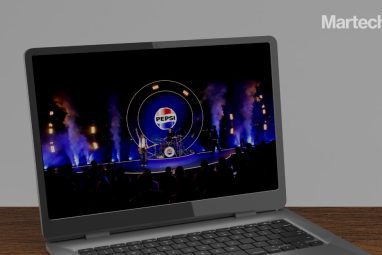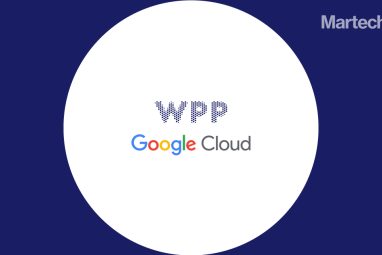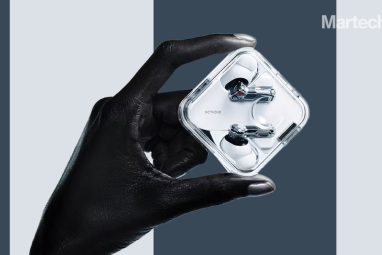Consumers Frustrated with Disconnected Experiences Look for Alternatives
Brands must integrate disparate applications, data sources and devices to deliver connected experiences and earn loyalty MuleSoft, a provider of the leading platform for building application networks, released a new global study that reveals four out of five consumers continue to receive disconnected experiences from organisations. As a result of this continued frustration, consumers are […]
Topics
Brands must integrate disparate applications, data sources and devices to deliver connected experiences and earn loyalty
MuleSoft, a provider of the leading platform for building application networks, released a new global study that reveals four out of five consumers continue to receive disconnected experiences from organisations. As a result of this continued frustration, consumers are more willing than ever to seek out new service providers that can deliver connected, personalised experiences. Based on the findings from the Customer Experience and the Connectivity Chasm report, it is clear that organisations must provide the connected experiences consumers expect or risk losing their loyalty and business.
“Globally, consumers are feeling the effects of data silos that create disconnected experiences,” said Simon Parmett, CEO, MuleSoft. “To meet consumer expectations, organisations must integrate disparate data sources to understand their customers better and make every touchpoint an opportunity to earn loyalty and add value. With the help of APIs and API-led integration, brands can position for future innovation, create more meaningful relationships and earn customer trust.”
Also Read: Consumers Want Brands to Understand Their Emotions: Invoca Study
Frustration with Disconnected Experiences Continues
Globally 82% of consumers believe organisations in at least one of the five sectors surveyed – banking, insurance, retail, healthcare and public sector – provide a disconnected experience, failing to recognise preferences across touchpoints and provide relevant information on time. This figure indicates a lack of improvement in customer experience (81% in 2018) and is pushing consumers to consider new service providers.
- Nearly three-quarters (72%) of global consumers would consider changing service providers in response to receiving a disconnected experience.
- Younger consumers aged 18-34 years old are the least tolerant of disconnected experiences (78%) and are more willing to change providers compared to older consumers aged 35-54 (71%) and 55+ (70%).
- Consumers in Singapore (87%), the U.S. (78%) and Australia (77%) are the most likely to consider changing providers as a result of a disconnected experience.
Consumers Are Conflicted with Sharing Data to Fuel Connected Experiences
To receive a more personalised experience, 61% of global consumers would be willing for service providers in at least one of the sectors surveyed – banking, insurance, retail, healthcare and public sector – to share relevant personal information with partners and trusted third parties.
- 79% of 18-34-year-olds – millennials and generation Z – indicate they would be willing for providers in at least one of the sectors surveyed to share their relevant personal information with partners and trusted third parties to receive a more personalised experience.
- However, more than half of consumers (53%) say they’ve become more wary about sharing personal data over the last 12 months.
- In fact, only 42% of consumers think data protection legislation has improved how organisations use personal data.
- Consumers in the U.S. (37%), Germany (37%), Australia (33%) and Japan (30%) were the least confident that data protection legislation has improved how organisations use personal data.
Also Read: Consumers Shop on Social Media Despite Worries, According to New MarkMonitor Research
Across Industries, Consumers Want Organisations to Nail the Basics
The report shows that across industries, consumers’ expectations continue to evolve, but getting the basics right is vital to maintain customer satisfaction and loyalty.
- 80% of consumers say out-of-date or inaccurate data (e.g., inventory availability, delivery tracking information) would make them more likely to shop with an alternative retailer next time.
- The most important factors in determining retail customer loyalty are cost (63%), the accuracy of inventory availability / real-time delivery information (41%), in-store customer experience (40%), and consistent experiences across in-store, online and mobile (36%).
- More than a quarter (27%) of people have switched or considered switching their bank in the last 12 months to receive a better digital experience. This number is even higher (49%) amongst 18-34 years olds.
- Consumers say that filing a claim with insurance providers is the most time-consuming (70%) and the second most complicated (40%) task.
- 61% of consumers think that healthcare providers make effective use of the data made available to them (e.g., personal health data from wearable tech and apps) to deliver a better standard of care. This is a significant increase from 42% in 2018.
- 73% of citizens polled feel public sector organisations lag behind the private sector when it comes to providing connected multi-channel services.
The Coherence Economy Takes off Among Millennials
Consumers are starting to become more familiar with engaging multiple service providers through one application or experience. Common experiences like using a music streaming service via a ride-hailing app and integrating multiple financial accounts into a planning app are part of the broader Coherence Economy – a new approach to customer engagement where multiple brands partner to add value through an ecosystem approach.
- More than a quarter (27%) of global consumers say they often engage with multiple service providers through a single app or experience.
- This number climbs to nearly half (49%) for 18-34-year-olds, indicating millennials’ desire for these experiences.
- Interestingly, consumers in the U.K. (21%) and the U.S. (24%) are less frequently engaged in coherent experiences compared to those in France (36%) and Singapore (47%).
Also Read: Millennials Are Using Voice Search to Find Local Small Businesses, Mostly Restaurants
“Organisations must cultivate partnerships to surprise and delight consumers. In the Coherence Economy, organisations need to develop strategies to collaborate with partners in a digital ecosystem and orchestrate personalised experiences for consumers,” said Uri Sarid, CTO, MuleSoft. “To innovate at scale and accelerate the delivery of products and experiences to customers, organisations will likely need to leverage a majority of third party services. By leveraging an API-led approach to integration, brands across all industries can easily connect their applications, data and devices to provide a holistic view of the consumer and easily empower new, connected experiences.”






